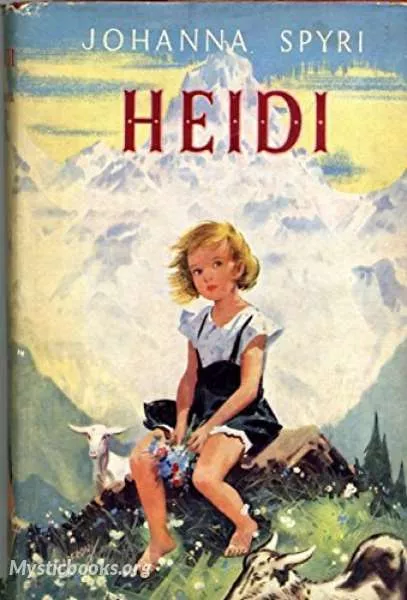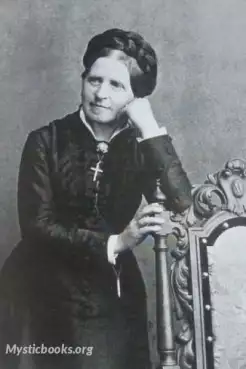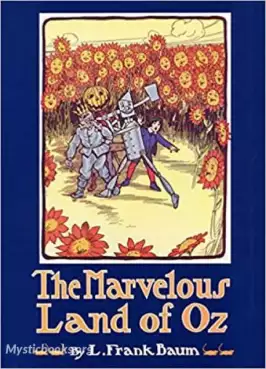
Heidi
'Heidi' Summary
Heidi is an orphaned girl initially raised by her maternal grandmother and aunt Dete in Maienfeld, in the Grisons, after the early deaths of her parents, Tobias and Adelheid (Dete's brother-in-law and sister). Shortly after the grandmother's death, Dete is offered a good job as a maid in the big city, and takes 5-year-old Heidi to her paternal grandfather's house, up the mountain from the Dörfli ('small village' in Swiss German). He has been at odds with the villagers and embittered against God for years and lives in seclusion on the alm, which has earned him the nickname 'The Alm-Uncle'. He briefly resents Heidi's arrival, but the girl's evident intelligence and cheerful yet unaffected demeanour soon earn his genuine, if reserved, love. Heidi enthusiastically befriends her new neighbours, young Peter the goatherd, his mother, Brigitte, and his blind maternal grandmother. With each season that passes, the mountaintop inhabitants, especially Peter and the grandmother, grow more attached to Heidi, and she to them. However, the grandfather refuses to allow Heidi to attend school, and quarrels with the local pastor and schoolmaster, who try to encourage him to do so.
Three years later, Dete returns to take Heidi to Frankfurt to be a hired lady's companion to a wealthy girl named Clara Sesemann, who is unable to walk and regarded as an invalid. Clara is charmed by Heidi's simple friendliness and her descriptions of life on the Alm, and delights in all the funny mishaps brought about by Heidi's naïvety and lack of experience with city life. However, the Sesemanns' strict housekeeper, Fräulein Rottenmeier, views the household disruptions as wanton misbehaviour, and places the free-spirited Heidi under more and more restraint. Soon, Heidi becomes terribly homesick for the Alm, and grows alarmingly pale and thin. Her one diversion is learning to read and write, motivated by Clara's grandmother, who shows her trust and affection, and encourages her to believe in God and to pray.
Heidi's intractable homesickness leads to episodes of sleepwalking where she goes downstairs and opens the front door, which the household initially takes as the work of ghosts, and the family doctor recommends she be sent home as a matter of urgency before she becomes seriously ill. She returns to the mountains laden with presents for her friends, but finds one of her greatest pleasures is reading hymns to Peter's blind grandmother, who can no longer do so for herself. Her faith in God speaks to something in the Alm-Uncle, and he returns to the Christian faith. He accompanies Heidi to church, and that winter takes accommodation in the village so that she can attend school.
Heidi and Clara continue to keep in touch and exchange letters. A visit by the doctor to Heidi leads him to eagerly recommend that Clara visit Heidi, feeling assured that the mountain environment and the wholesome companionship will do her good. Clara makes the journey the next season and spends a wonderful summer with Heidi, becoming stronger on goat's milk and fresh mountain air. But Peter, who grows jealous of Heidi's and Clara's friendship, pushes her empty wheelchair down the mountain to its destruction, although he is soon wracked with guilt about what he did and ultimately confesses to it. Without her wheelchair, Clara has no choice but to learn to walk; she attempts to do so and is gradually successful. She is not very strong, often relying on Heidi or the grandfather to stay standing and not collapse, but it marks an end to her time as a lonely, shut-in invalid. Her grandmother and father are amazed and overcome with joy to see Clara walking again. The Sesemann family promises to provide permanent care for Heidi, if there ever comes a time when her grandfather is no longer able to do so.
Book Details
Language
EnglishOriginal Language
GermanPublished In
1881Authors

Johanna Spyri
Switzerland
Johanna Louise Spyri was a Swiss author of novels, notably children's stories, and is best known for her book Heidi. Born in Hirzel, a rural area in the canton of Zurich, Switzerland, as a child she s...
Books by Johanna SpyriDownload eBooks
Listen/Download Audiobook
Related books

The Marvelous Land of Oz by L. Frank Baum
The Marvelous Land of Oz: Being an Account of the Further Adventures of the Scarecrow and the Tin Woodman, commonly shortened to The Land of Oz, publi...

The Children of the New Forest by Frederick Marryat
The Children of the New Forest is a children's novel published in 1847 by Frederick Marryat. It is set in the time of the English Civil War and the Co...

The Wise Woman by George MacDonald
The Lost Princess: A Double Story, first published in 1875 as The Wise Woman: A Parable, is a fairy tale novel by George MacDonald. The story des...

Sky Island by L. Frank Baum
Sky Island: Being the Further Adventures of Trot and Cap'n Bill after Their Visit to the Sea Fairies is a children's fantasy novel written by L. Frank...

Little Colonel's House Party by Annie Fellows Johnston
In 'The Little Colonel's House Party,' Lloyd Sherman, the spirited and beloved 'Little Colonel,' invites three new friends to spend a summer at her fa...

Байки Леонiда Глiбова (Fables by Glibov) by Leonid Hlibov
The book "Fables by Glibov" is a collection of over a hundred fables written by the renowned Ukrainian writer Leonid Hlibov. These fables feature anth...

Harper's Young People, Vol. 01, Issue 21, March 23, 1880 by Various
Harper's Young People was an illustrated weekly publication for children, which included serialized and one-off short stories, tales from history, poe...

Soap Bubble Stories by Fanny Barry
Soap Bubble Stories is a collection of enchanting and imaginative tales for children of all ages. These stories are as varied and beautiful as the soa...

English Fairy Tales by Joseph Jacobs
Jack the Giant-Killer, Tom Thumb, Goldilocks and The Three Bears, Henny Penny, Dick Whittington, The Three Little Pigs, Red Riding Hood and a host of...

Maoriland Fairy Tales by Edith Howes
Most of the tales have some basis in history. It is an oral language so all histories have to be remembered and retold. To help with this memory retel...
Reviews for Heidi
No reviews posted or approved, yet...